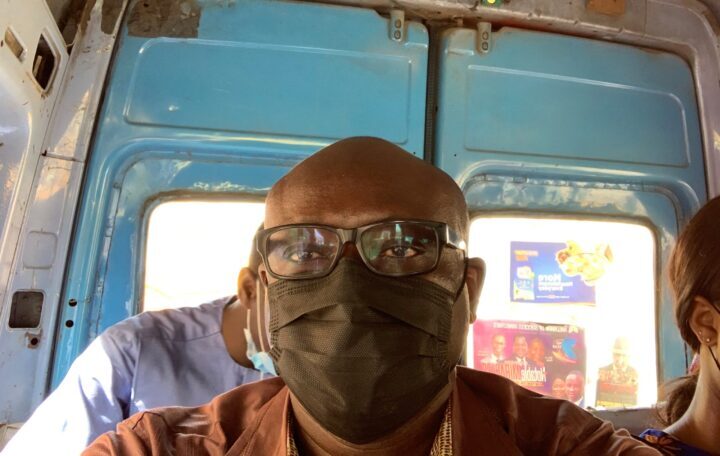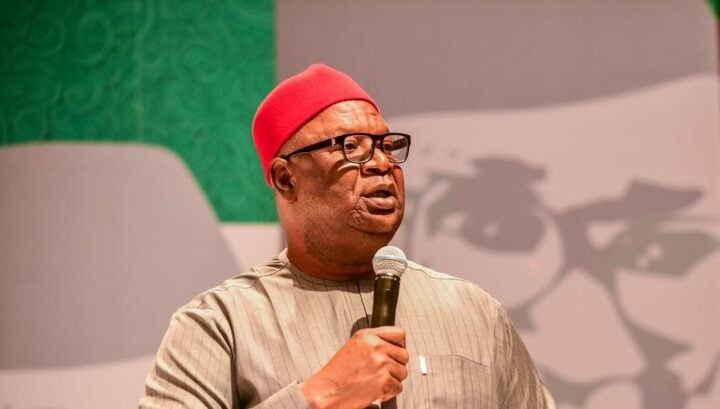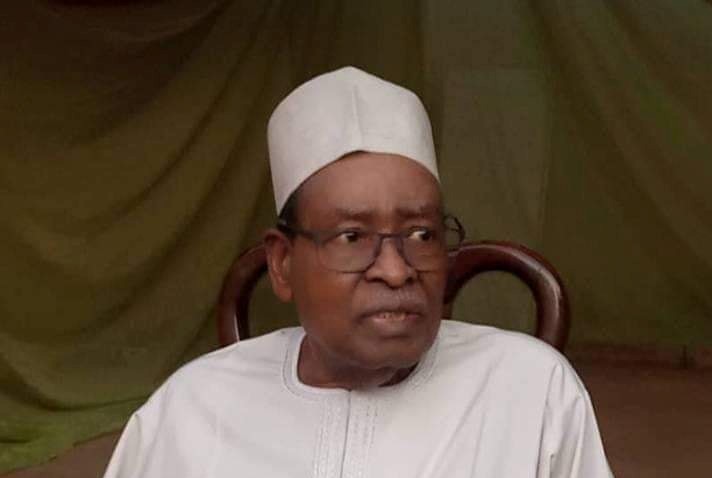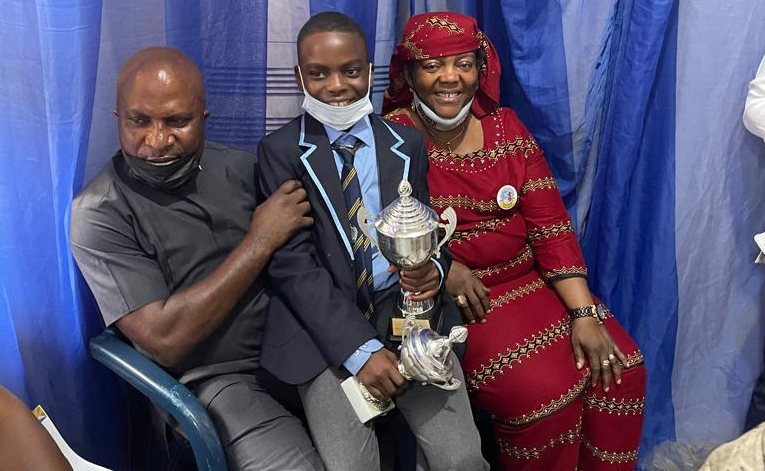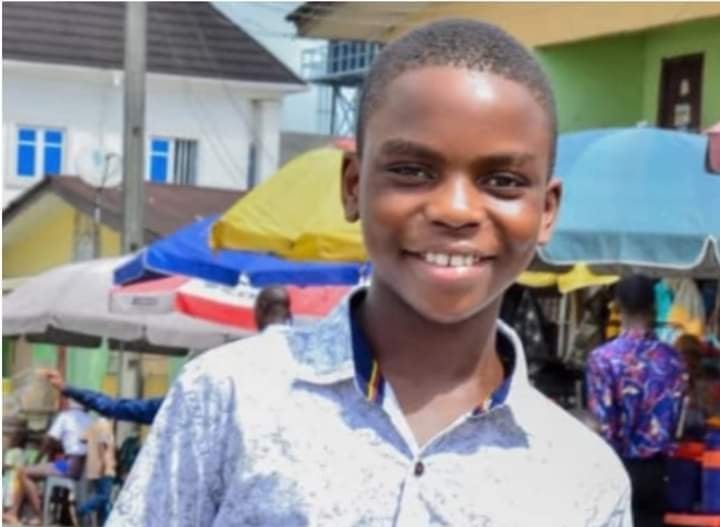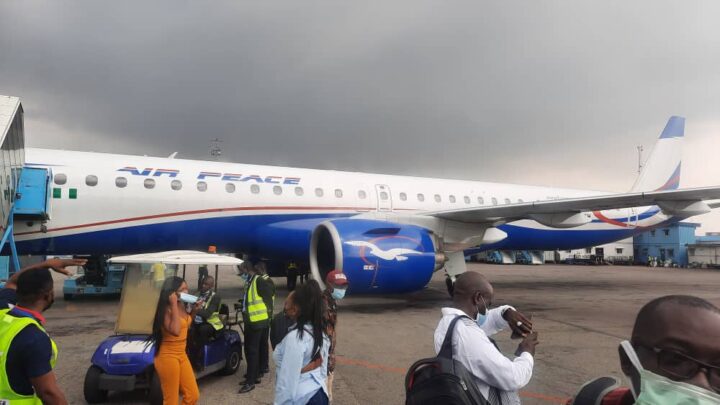On Thursday, I did something I had not done in Lagos since 1999: I rode in a public bus. I had taken my car for service at Oba Akran Avenue, Ikeja. I was told it would be ready “in two hours”. I thought to wait at the reception to do some office work. But as the guy started amending “in two hours” to “between two and three hours”, I suspected that it might stretch to between “four and five hours”. After all, I was not in front of the queue. I decided to return to my office. My first instinct was to hail a cab. My office was not far away and I should normally be there in 15 minutes. Then I remembered the kilometres of traffic jam I had seen on Awolowo Way. This was not a problem Uber could solve.
Then an idea struck me: take a yellow bus! My enthusiasm was babyish. The last time I rode in a yellow bus was in August 1999. That was the month I got my first car, an official property that effectively created a wedge between the good old yellow bus and myself. As I walked towards Ikeja bus stop, one conductor was shouting “Ah-eh-gey!” I smiled. So, these people still pronounce “Agege” this way? The world has not changed a bit. I kept walking till I got to the bus stop where the conductor was yelling “Ojodu Berger!” I approached him and asked, in whispers, if the bus would pass in front of “Coca-Cola”. He responded: “N200!” I didn’t need an interpreter. Deal sealed.
Everything was very familiar. It was an 18-seater bus with battered seats and severely scratched plastic windows. I got a seat on the third row. I was the third passenger on the row, so there was still a seat beside me. The row behind was not filled yet. No passenger wanted to sit there. They would come, peep inside the bus and stay outside, waiting for the person who would volunteer to go to the back. I never used to like the back row myself — I am a six-footer and always had to squeeze my legs into the tiny space. I still have knee pains from my previous life riding in public transport for hours between Ilorin and Lagos. Eventually, the yellow bus filled up and the conductor took his seat.
Barely 100 metres after take-off, before even reaching cruising level, the conductor started demanding payment. Things were so familiar. The policewoman in front of me did not pay. They call people like that “staff”. I don’t know when this culture started, but uniformed men and women were not paying transport fare in those days either. I won’t be surprised if NSCDC members have joined the free riders’ association too. In a sense, you could say the bus drivers are trying to recognise and reward the sacrifices of these officers to the nation. But, in truth, the conductors dare not insist on collecting the fare. It is not voluntary appreciation: this is pure impunity and daylight robbery.
Advertisement
The man on my right was smelling of ogogoro. This was around 11am. Legend! I had noticed that when he jumped into the bus, he was grimacing. I had thought he hit his leg or head against something. All my “sorry” went unnoticed. It was when a wave of ogogoro-laced air started blowing in my direction that I understood the game. I had my face mask to thank for the protection I enjoyed from the alcoholic pollution. For the 30-minute ride between Ikeja and the closest bus stop to my office (the traffic was that bad), the man slept most of the time. He had given the conductor N1,000 and seemed to wake up each time he remembered he had not collected his N800 change.
I was happy to volunteer as the “assistant conductor”. I would collect the fare and pass it on to my boss — the chief conductor — and then convey the change to fellow passengers. It was service to humanity. There was no commission. Full disclosure: I am a veteran fare collector. In the 1980s when I was a secondary school student back in my village, my holiday job was serving as conductor in my grandfather’s transport business. He had a fleet of vehicles all bearing the inscription: “No Condition is Permanent”. He often accused my grandmother of overpampering me and always looked pleased each time I volunteered to be a conductor. One more disclosure: I always got paid. It was pure fun.
Only four of us wore masks. After all, how many Nigerians believe COVID-19 is real? In my interactions with ordinary Nigerians, even those who believe COVID-19 is real would tell you it is “ordinary malaria” that has been glorified. I once asked one of those pushing the idea: was it “ordinary malaria” that killed Abba Kyari, Abiola Ajimobi and the rest? The response shut me up: “It kills only big men!” My barber told me as much too. “I have never worn a face mask and nothing has happened to me. It is a disease for the rich!” he declared. My silent response: we should be thankful that COVID does not behave like Ebola. Otherwise, Nigeria would have become a gigantic graveyard.
Advertisement
There was no AC. The heat was much and I was sweating a flood. One passenger suddenly opened a bottle of my favourite drink — chilled Coke Classic. Thirst overwhelmed me instantly and I coveted a sip. But my grandmother, God rest her soul, used to caution me against eating or drinking from strangers. “They will drug you and kidnap you,” she would say. Kidnapping used to be only for ritual purposes. Today, it is also a commercial venture, bringing in billions of naira as criminals create businesses and jobs in the dark economy. In Lagos, though, there is this “one chance” phenomenon in which ritualists use buses to kidnap passengers. Thankfully, I didn’t remember before the ride.
There were downsides to my ride. One, I kept checking for my phone and wallet. Do I have trust issues? I hear phones and wallets disappear from pockets inside the bus. I did not stop touching them until I got to my bus stop. My bus stop? That was another issue. It dawned on me I did not know the name of the one closest to my office. Testing Ground? Radio? Coca-Cola? Should I ask my boss? No way! We Lagosians would rather eat grass than show our vulnerabilities. We would be seen as JJCs. And that was how I watched in horror as we went past my bus stop. I quickly told the conductor I would drop at “next bus stop”. I gallantly trekked back. Too much sense won’t kill me!
When I got to office and narrated my experience to my colleagues, I got an important piece of information: I took the wrong bus. I should have taken “Secretariat”, not “Ojodu Berger”, and the fare would have been N100, not N200. It now made sense why the conductor yelled “N200”. He probably thought I wanted to use “Lagos sense” to negotiate a cheaper fare for “Coco-Cola” and was not in the mood for that nonsense on a Thursday morning. When I went back for my car two and a half hours later (yes, they kept to time), I was wiser. I paid only N100. This time, I even enjoyed the privilege of sitting beside the driver, who instructed me with a smile: “Oga, wear your seat belt.”
My yellow bus experience got me thinking on so many things. One, why can’t public transport be decent, comfortable and safe in Nigeria? It will save us so many headaches. Who says I must drive a car to the office? Imagine the impact on the traffic and the environment when we all put our cars on the road. More so, an efficient and affordable public transportation system will relieve the burdens on the low-income earners in terms of transportation cost and quality of life. Even CEOs should be able to use public transport without feeling scared about security or getting worried about the conditions. After all, Wall Street executives use public transport. This is something we need to think about.
Advertisement
Two, I was also thinking about the contrasting living conditions of Nigerians. Let us do some math. If I was living in Ikeja and working in Ojodu, I would spend at least N400 on transport daily. That is N8,000 monthly, minus lunch. If I pay a monthly rent of N10,000 and give my children transport fare to school — in addition to buying foodstuff for the house and paying utility bills, and the little matter of school fees and hospital bills — my monthly expenses would be far in excess of the N30,000 minimum wage, which most Nigerians don’t even earn. Throw in the fact that over 20 million Nigerians don’t have jobs and you would catch a glimpse of the real story of Nigerian poverty.
The inequality in Nigeria is too much. In the same country, some people — by virtue of their unfettered access to the treasury — ride the most expensive cars and jets, send their children to the most expensive schools home and abroad, and receive the best medical treatment money can buy. For sure, I know that there are poor people in advanced countries. Jesus Christ himself said we would always have the poor among us. But that is relative poverty. What we are dealing with in Nigeria is extreme poverty, with tens of millions of citizens surviving on less than N600 per day. People can be poor but they should also be able to enjoy some comfort here and there.
The ruling class must do some soul-searching and ask themselves honest questions as we approach another general election. It is not enough to coin sexy slogans and wear colourful attires. How many millions have they pulled out of poverty since 1999? How many Nigerians now have decent accommodation with water and electricity? How many can afford basic medications? These real-life issues should ordinarily shape the agenda for 2023. But, unfortunately, my yellow bus colleagues are more likely to be excited by ethnic, religious and partisan emotions. That is how issues are being framed by the political elite — who have already taken good care of themselves. Frustrating.
AND FOUR OTHER THINGS…
OROMONI’S AGONY
Advertisement
The ghastly story of Sylvester Oromoni Junior, a 12-year-old student of Dowen College, Lagos, is something no parent should experience. He was reportedly bullied, bruised and battered by fellow students. The bullies were said to have forced him to say he got injured playing football and this was apparently the line the school towed, although the boy reportedly confessed when his parents took him home to Warri, Delta state, that he was bullied by five students. Painfully, he died afterwards. A lot of things went wrong on all sides. While nothing will bring Junior back to life, this tragedy offers an opportunity to seriously tackle bullying in our schools before another soul is lost. Condolences.
END GAME
Advertisement
The Lagos state government has rejected certain aspects of the End SARS panel report, pointing out what it calls “inconsistencies”. The government says names of nine people just “sprang up” as killed at the Lekki Toll Plaza but the circumstances surrounding their death were neither explained nor investigated by the panel. (Ironically, three of those listed as killed are reportedly still alive — which is why some have alleged that the panel was working to an answer). While I do not doubt that there are loopholes in the report, the key issues still have to be comprehensively addressed: police brutality and civilised management of public protests. Justice must be also served. Non-negotiable.
HEADLESS SPENDING
Advertisement
Mr Boss Mustapha, secretary to the government of the federation, made a revelation on Tuesday but it did not trend. He said about 60% of federal government’s overhead expenditure (an aspect of recurrent spending) from 2012 to 2014 was spent on travels, maintenance, local and international training, welfare, office stationery/consumables, honoraria, etc. Recent data from the budget office, he said, showed that MDAs’ recurrent spending is still on the rise: from N3.61trn in 2015 to N5.26trn in 2018 and N7.91trn in 2020. Ladies and gentlemen, that is the summary of how our money is spent in Nigeria. I bet this is what also happens in the states — in the spirit of true federalism. Priorities.
OMINOUS OMICRON
Advertisement
The world has gone into a frenzy since the discovery of another variant of the coronavirus, which the World Health Organization (WHO) has promptly named “Omicron” (WHO is very good at naming viruses). Nobody is sure if Omicron will evade the current vaccines since it is new. As a result, many countries have been taking harsh measures in trying to keep it at bay. Many commentators have been angry at the “knee jerk” reactions, especially the ban on flights from southern African countries. I think countries are only trying to be cautious. If the world had banned all flights from China when Wuhan happened, the story might have been different today. Hindsight.
Add a comment

